CDEMA and NEMO Assists Cacao Farmers in Toledo
Earlier this year, many farmers in Toledo faced devastating losses as raging forest fires destroyed their farm trees, crops, and pastures. Thankfully, they’ve been getting help to get back on their feet. Today, the National Emergency Management Organization (NEMO) and the Caribbean Disaster Emergency Management Agency (CDEMA) stepped in to provide essential agricultural equipment for planting cacao seeds. The ceremony saw the presence of Toledo West Area Representative Oscar Requena, NEMO Coordinator Daniel Mendez, and a representative from CDEMA’s co-sponsor. News Five’s Marion Ali has the story.
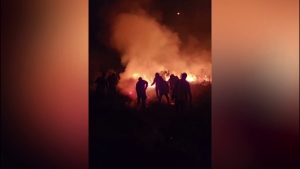 Marion Ali, Reporting
Marion Ali, Reporting
Six months ago, southern and western Belize were engulfed in flames as uncontrolled forest fires raged for weeks, devastating farmlands, pastures, and crops. A situational report later revealed that over ten thousand hectares of agricultural land in Toledo were destroyed. Today, there’s a glimmer of hope as some of those farmers received much-needed assistance from NEMO to replant cacao. Coordinator Daniel Mendez shared details about the equipment and support provided.
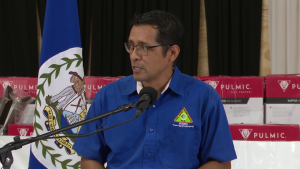
Daniel Mendez
Daniel Mendez, National Emergency Coordinator, NEMO
“What we are providing is these two components. And so, this this short opening really is the beginning of a longer-term process. We will be working with the Toledo Cacao Growers Association and the Maya Mountain Cacao in the next few in the next few months to start to provide more assistance so that in next year you will be able to start to your your farms will be able to start to recover. So this is only one component that we’re starting today, and the rest will continue and we will do everything we can to keep on providing support to you.”
CDEMA’s global donor partner, Global Affairs Canada, has provided funding to assist in the project and today, CDEMA’s Project Coordinator, Jason Francis, explained that it is also important for crops to be more climate resilient.
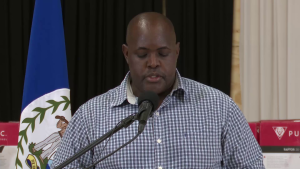
Jason Francis
Jason Francis, Project Coordinator, CDEMA
“As we witness the handover of this important agricultural equipment purchased through this project, the CDEMA Coordinating Unit is happy to have partnered to provide Canadian 140, 000 worth of equipment and support to support the restoration of the cocoa sector here in Belize. In this region in particular to support the hardworking farmers here today and their families. We urge continued engagement and continued cooperation between national, regional, international, and in particular, our community experts on how we can build climate resilience, particularly in the agricultural sector.”
Jose Coy, who is the Managing Director of Maya Mountain Cacao Farms, says that he will try to get better prices for the farmers, depending on what the international market is offering.
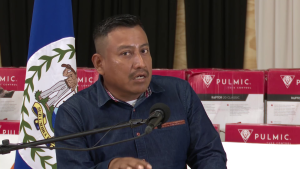
Jose Coy
Jose Coy, Managing Director, Maya Mountain Cacao Farm
“We’ll be reaching out to you to share cacao seedlings so that you can replant, so that then the industry can continue to boom. We’re right now doing our budget and looking at the estimated cacao beans that were estimated to buy for this season. So I’m seeing that cacao industry, at least my mountain will bring nearly $2 million to Toledo district. So each farmer will be selling cacao beans; you’ll be receiving your money for your beans.”
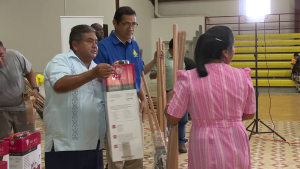 Coy shared that farmers in Trio are currently earning two dollars and twenty-five cents per pound of cacao beans they sell. However, since they rent land from the government, $0.25 is deducted from each pound. He added that if international prices go up, the extra earnings will be passed on to the cacao farmers. Marion Ali for News Five.
Coy shared that farmers in Trio are currently earning two dollars and twenty-five cents per pound of cacao beans they sell. However, since they rent land from the government, $0.25 is deducted from each pound. He added that if international prices go up, the extra earnings will be passed on to the cacao farmers. Marion Ali for News Five.





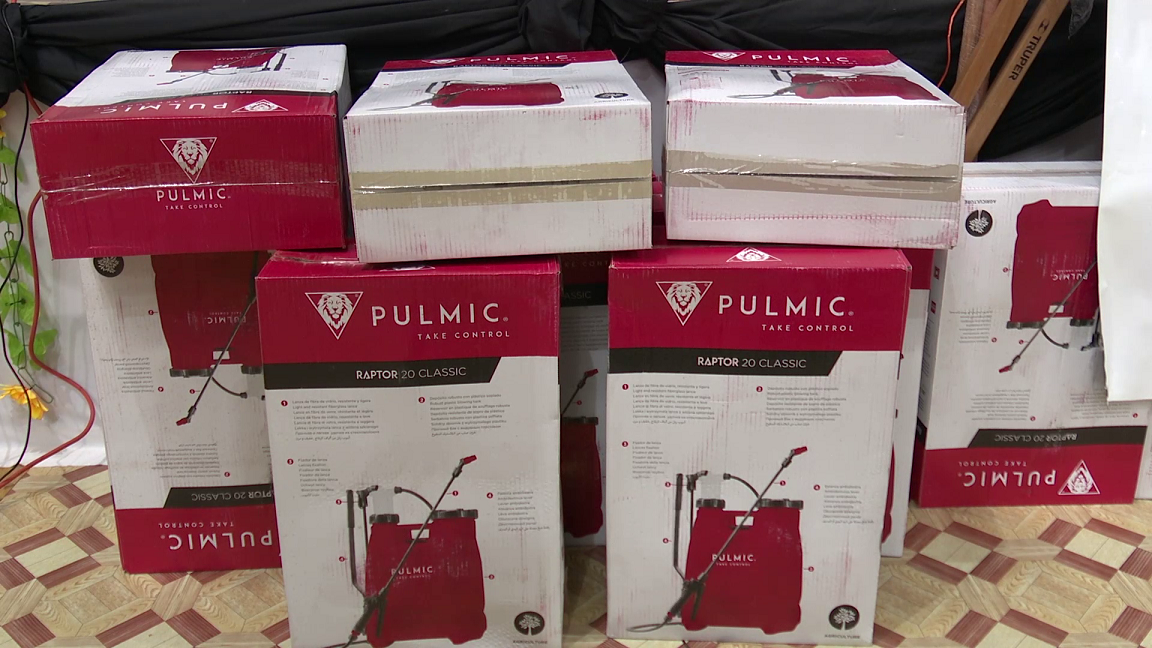
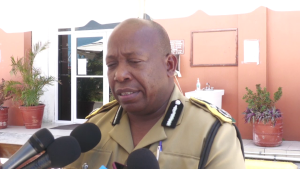
Facebook Comments